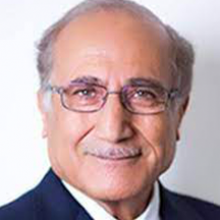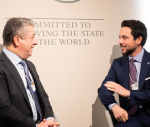You are here
Neuroscience vis-à-vis business and politics
Feb 18,2019 - Last updated at Feb 18,2019
A week ago, my talented and multilingual daughter gave me a copy of Harvard Business Review Special Issue. It was titled, “The Brain Science Behind Business”. I started reading articles in it with novel titles, such as “The Neuroscience of Trust”, “What happens to Your Brain When You Negotiate About Money” or “Social Intelligence and the Biology of Leadership”.
Yet, the articles which caught my attention most were those which pertain to neuromarketing. These focused on the ways to reach the nerves which shape a consumer’s mind; this is what I would call consumer mind manipulation.
On the occasion of the 15th anniversary of Facebook, CNN screened a two-hour documentary on how this company sells information to major research centres which analyse behaviours of message senders and offer them in capsuled proposals to make political candidates reach the inner feelings of voters and outperform their competitors.
The wealth of information that is made available on the major ICT posts is now being used big time by business, politics and intelligence. Although there are many outcries lamenting the loss of privacy and human rights activists crying wolf, we know that such information and the business of processing it is growing and will be a source of huge income.
All of the literature from the story of Frankenstein to the Manchurian Candidate, to the book of the famous Maltese brain surgeon and psychoanalyst Edward de Bono, until Robert J. Shiller and Richard Thaler, who won the Nobel Prize in economics, all have dealt with manipulation of the mind. It is not a new revelation, it has been practiced, knowingly or not, since the dawn of history.
The tools and precision of this “art” are expanding and developing fast. I became more keenly aware of this fact as I observed the deliberate and insistent campaign against Jordan and its stability.
Look at the issue of corruption and how the social media deal with it. The content usually uses 10 per cent truth to redress it with 90 percent fabrications, a clear-cut example of what I mean.
They use different people to address different segments of the population. Some are fake deep, or as those are defined as the smart looking people who tell you what to do or what to avoid when their content is nothing but junk. Others pretend to be knowledgeable and in on many secret info, which they repackage and sell in a shoot-from-the-hip manner. Then there are those disguised as do-gooders, who have nothing to lose but their honesty.
The manipulation of public opinion gains more momentum when governments’ handling of issues is way less than desirable and their expression is all too traditional.
People, in general, feel venerable due to the ambiguity of everything, from politics to economic developments to traffic congestion. Thus, people believe those who give them a chance to exercise group therapy.













